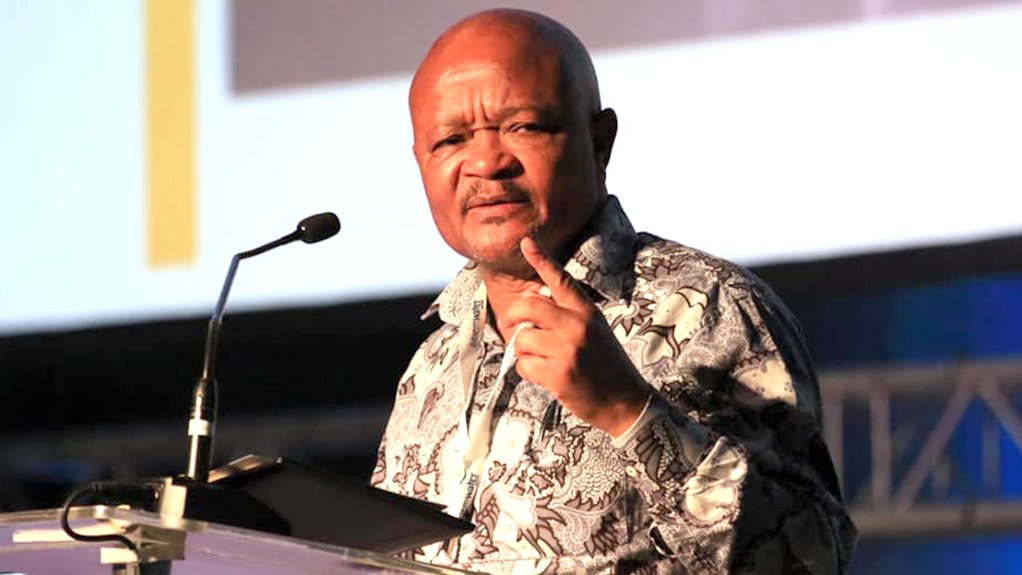The City of Johannesburg (CoJ) has presented an action plan, comprising immediate, medium and long-term measures, to tackle widespread water infrastructure challenges and the high levels of nonrevenue water.
This followed a meeting on March 5, where the Department of Water and Sanitation (DWS) outlined an assessment report of the state of water provision in the city and requested the CoJ to develop an action plan in response.
“The metropolitan was requested to come back with an action plan to address all the issues raised in the report, including how the city will deal with the infrastructure challenges and nonrevenue water which is contributing to the situation [of regular water supply interruptions being experienced by the residents and affecting business and public services],” the DWS said in a statement late on Tuesday evening.
On March 19, the CoJ, tabling the plan to Water and Sanitation Minister Senzo Mchunu and Deputy Ministers David Mahlobo and Judith Tshabalala during a meeting with CoJ leadership, led by the executive Mayor Kabelo Gwamanda, unpacked infrastructure projects to refurbish, upgrade and construct new storage reservoirs, pumps stations and the associated infrastructure to augment storage capacity; as well as initiatives to mitigate nonrevenue water through the implementation of water conservation and demand management technical interventions to reduce demand.
The technical interventions, which are in different stages of implementation, include repairing leaking reservoirs and tower infrastructure; replacing water pipes; replacing domestic and large consumer meters; retrofitting and removing wasteful devices; and enforcing by-laws, including the removal of illegal connections and customer bypass connections.
Some of these projects, however, still require funding, with the city’s infrastructure backlog estimated at about R27-billion.
According to the DWS, while it was agreed at the meeting that the parties will focus on what can be done with the current budget and the new budget in July, possible private sector funding to plug the gap is being considered.
During the Tuesday meeting, Mchunu acknowledged efforts being made by the city’s water entity Johannesburg Water to deal with infrastructure backlogs and the various interventions they are implementing, including daily WaterRoom meetings, to deal with the current recurring water outages, the most recent of which was a result of lighting strikes at the City Power station supplying the Eikenhof System.
“We are pleased that the system has started to pick up, albeit still generally low. It is evident that there is hard work happening on the ground, focusing on areas that are hard hit. There are areas that have been severely affected and some for several days, but given the pace there is going to be stability. We sympathise with residents as the intermittent water supply continues, but we want to assure them that the city has committed to attend to various hotspots that are characterised by water shortages for a number of days,” Mchunu said.
Gwamanda added that the CoJ was reviewing various options to mitigate water supply interruptions and had set aside about R100-million for its electricity supply entity City Power to install alternative power supply infrastructure to key infrastructure that contributed to the water supply network.
“The collective agreed that over and above the technical interventions to address nonrevenue water, there was a serious need for a compressive public awareness campaign to conscientise residents on the importance of water conservation and water use efficiency as part of the Water Conservation and Water Demand Management Strategy.”
The metropolitan’s nonrevenue water is 46.1%, while the consumption rate is at 280 litres per capita per day.
Meanwhile, Mchunu urged the CoJ to work on its turnaround time in responding to pipe bursts and leaks in their distribution network, as this was what was contributing to the high physical water losses.
He said it was clear that the city required serious interventions and funding to deal with its water infrastructure renewal programme, and that DWS would work with Joburg Water in packaging some of their key infrastructure projects that require blended finance including from the private sector.
The Ministry and the executive mayor will hold a joint media briefing in the next few weeks to provide a comprehensive update on the interventions being implemented in the city to address water provision challenges.
EMAIL THIS ARTICLE SAVE THIS ARTICLE ARTICLE ENQUIRY
To subscribe email subscriptions@creamermedia.co.za or click here
To advertise email advertising@creamermedia.co.za or click here











